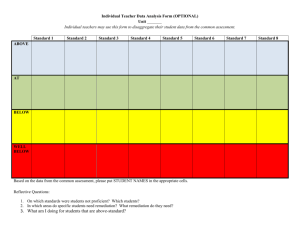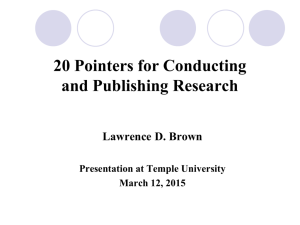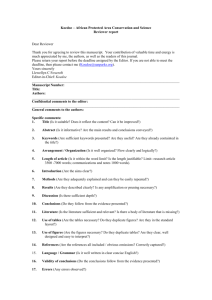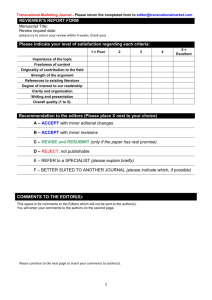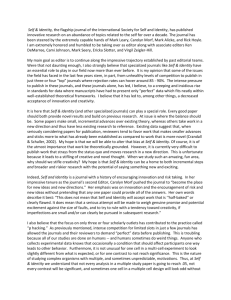Groundwater Monitoring and Remediation journal of the National Ground Water Association?
advertisement
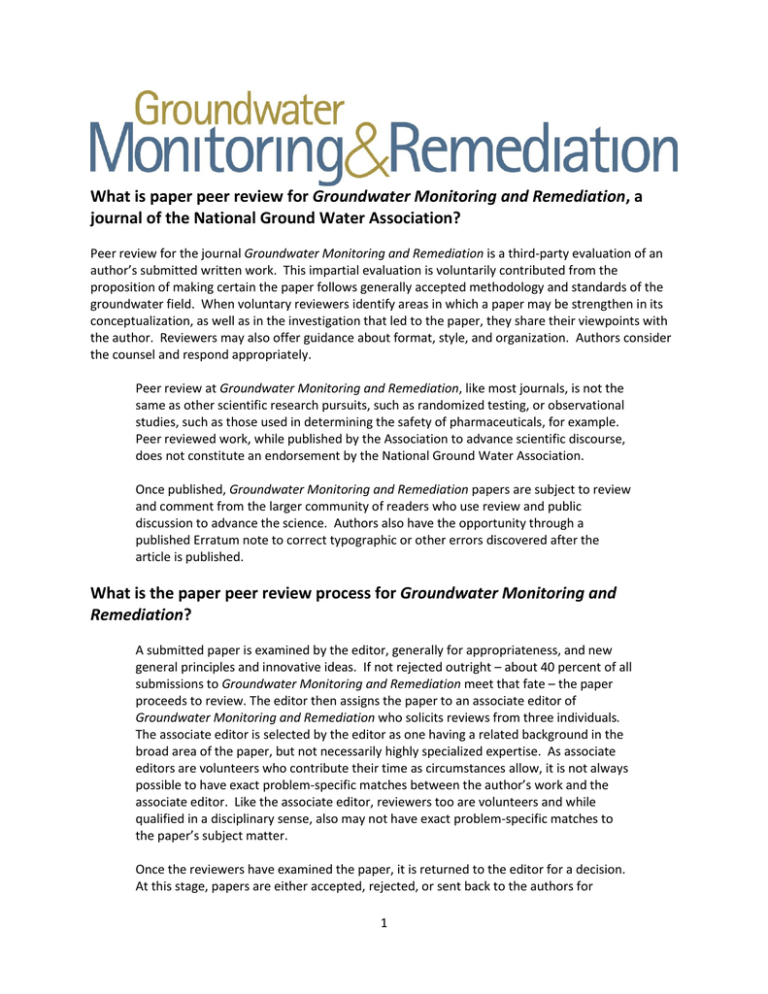
What is paper peer review for Groundwater Monitoring and Remediation, a journal of the National Ground Water Association? Peer review for the journal Groundwater Monitoring and Remediation is a third-party evaluation of an author’s submitted written work. This impartial evaluation is voluntarily contributed from the proposition of making certain the paper follows generally accepted methodology and standards of the groundwater field. When voluntary reviewers identify areas in which a paper may be strengthen in its conceptualization, as well as in the investigation that led to the paper, they share their viewpoints with the author. Reviewers may also offer guidance about format, style, and organization. Authors consider the counsel and respond appropriately. Peer review at Groundwater Monitoring and Remediation, like most journals, is not the same as other scientific research pursuits, such as randomized testing, or observational studies, such as those used in determining the safety of pharmaceuticals, for example. Peer reviewed work, while published by the Association to advance scientific discourse, does not constitute an endorsement by the National Ground Water Association. Once published, Groundwater Monitoring and Remediation papers are subject to review and comment from the larger community of readers who use review and public discussion to advance the science. Authors also have the opportunity through a published Erratum note to correct typographic or other errors discovered after the article is published. What is the paper peer review process for Groundwater Monitoring and Remediation? A submitted paper is examined by the editor, generally for appropriateness, and new general principles and innovative ideas. If not rejected outright – about 40 percent of all submissions to Groundwater Monitoring and Remediation meet that fate – the paper proceeds to review. The editor then assigns the paper to an associate editor of Groundwater Monitoring and Remediation who solicits reviews from three individuals. The associate editor is selected by the editor as one having a related background in the broad area of the paper, but not necessarily highly specialized expertise. As associate editors are volunteers who contribute their time as circumstances allow, it is not always possible to have exact problem-specific matches between the author’s work and the associate editor. Like the associate editor, reviewers too are volunteers and while qualified in a disciplinary sense, also may not have exact problem-specific matches to the paper’s subject matter. Once the reviewers have examined the paper, it is returned to the editor for a decision. At this stage, papers are either accepted, rejected, or sent back to the authors for 1 revision. Papers are declined because in the opinion of the reviewers, the associate editor and the editor the paper has been deemed unsuitable for publication for one of several reasons. In all, about 50 percent of original submissions are published. Papers revised by the authors are returned to the associate editor for evaluation of the quality of the revision. The editor again reviews the recommendation of the associate editor for the paper to decide whether the paper is suitable for publication or additional revisions are needed. It is common for additional rounds of revision and review to be required before the paper is finally accepted. Reviewers are asked to consider the following questions when evaluating a paper. 1. Do the ideas/techniques/methods presented in the paper change the way we perform or look at our science? 2. What are the important contributions of this paper? 3. Is the hypothesis clearly stated and the experimental design correctly chosen to test the hypothesis? 4. Is the analysis technically correct? 5. Does the paper present new ideas? If it contains new information, is it a fundamentally useful contribution or is it only marginally useful? 6. Is the literature cited complete and up-to-date, or are important references left out? 7. Has this work, or very similar work, been published elsewhere? 8. Is the abstract clearly written and informative? Does it convey the essence of the research or novel contribution? Authors should identify new general principles and innovative ideas and/or methods in the research. One or more case study examples may be used to illustrate the application of new methods and/or concepts. However, the new general principles to be explored in the paper must be highlighted in the abstract, the introduction, and conclusion sections. The title, also, should reflect the focus on new principles/methods rather than the case study aspects of the paper. Groundwater Monitoring and Remediation’s peer review process utilizes reviewer independence to obtain an unbiased evaluation. NGWA finds among a sampling of professional journals, Groundwater Monitoring and Remediation’s practice of sharing an author’s identity with the associate editors and reviewers is shared with 48 percent of such journals. Groundwater Monitoring and Remediation’s practice is not to disclose reviewer identities to authors unless the author asks and the reviewer grants permission. 2
